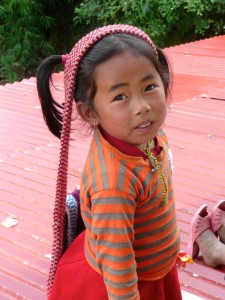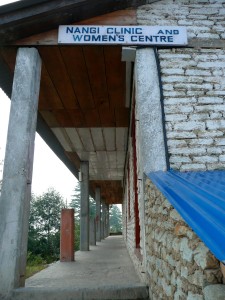Mahabir and I did not see eye to eye when it came to the future of Nangi Clinic. His goal was to have the clinic staffed by foreign doctors who would volunteer six months out of the year. I never thought this was practical, sustainable or respectful of the local healthcare workers…more on why in the next post. Suffice it to say, my goal was education of the local HCWs. Despite my reservations it was with great pride that he sent word to dozens of local and distant villages during my first visit in 2002 that an American doctor was in Nangi. The first week we were busy treating local villagers but the second week was my introduction to the caste system and how every action has a re-action. On Monday of the second week chaos broke out in the waiting area outside the clinic. I heard shouting and crying. I walked outside to see about a hundred villagers from the Beni area pushing and shoving the local villagers out of line. They were a higher caste who demanded “a good check-up” and “aushadhi” which is medicine. No matter the complaint they compared their medications with others, pushing their way back into the clinic, interrupting exams and yelling to demand more medicine.

Rita, age 6, likes to hang out at the clinic after school. She was sent to Nangi by her family to attend the school when she was five years old. She lives with an aunt.
Lila and Rupa, who ran the clinic, were caught in the middle of the cultural crossfire as members of a lower caste. Despite treading lightly, due to my cultural ignorance, the three of us had no tolerance for mistreating the sick, elderly or children. We decided caste system or not we would triage patients and started giving out numbers, treating the very sick, elderly, pregnant and young first. Everyone else was given a tag and told to come back. It was an interesting dilemma for the higher castes. They wanted the exam, they wanted the medicine because they perceived it as the best…but Hindu’s practice a complex set of beliefs and foreigners or non-believers are like “untouchables”…the lowest of castes…I was an untouchable. But in the end, want trumped religion and they begrudgingly obeyed the clinic triage system.
So why do I object to foreign doctors when I myself have been there five times? Why does Mahabir want foreigners and how has he balanced his clinic dream with the reality of staffing a remote clinic? Do you think western medicine has the answers for medical care in developing countries? Share your thoughts in the comments and stop back next week for more discussion on this weighty topic.


Interesting question you raise here! My thinking, knowing not much at all about medicine, probably fits more with yours. The locals are very important, and fostering education and work experience in locals feels to me very crucial indeed, and key towards a successful future. That said, I don’t object at all, if foreign volunteers play a part in this picture. But while lots of Himanchal Foundation’s success comes from giving free hands to volunteers, it may not be best in all cases.
I feel the “volunteer staff” solution isn’t as reliable, and it probably couldn’t be replicated outside Nangi – at least not as easily as the “clinic model”. Real success is when something spreads well!